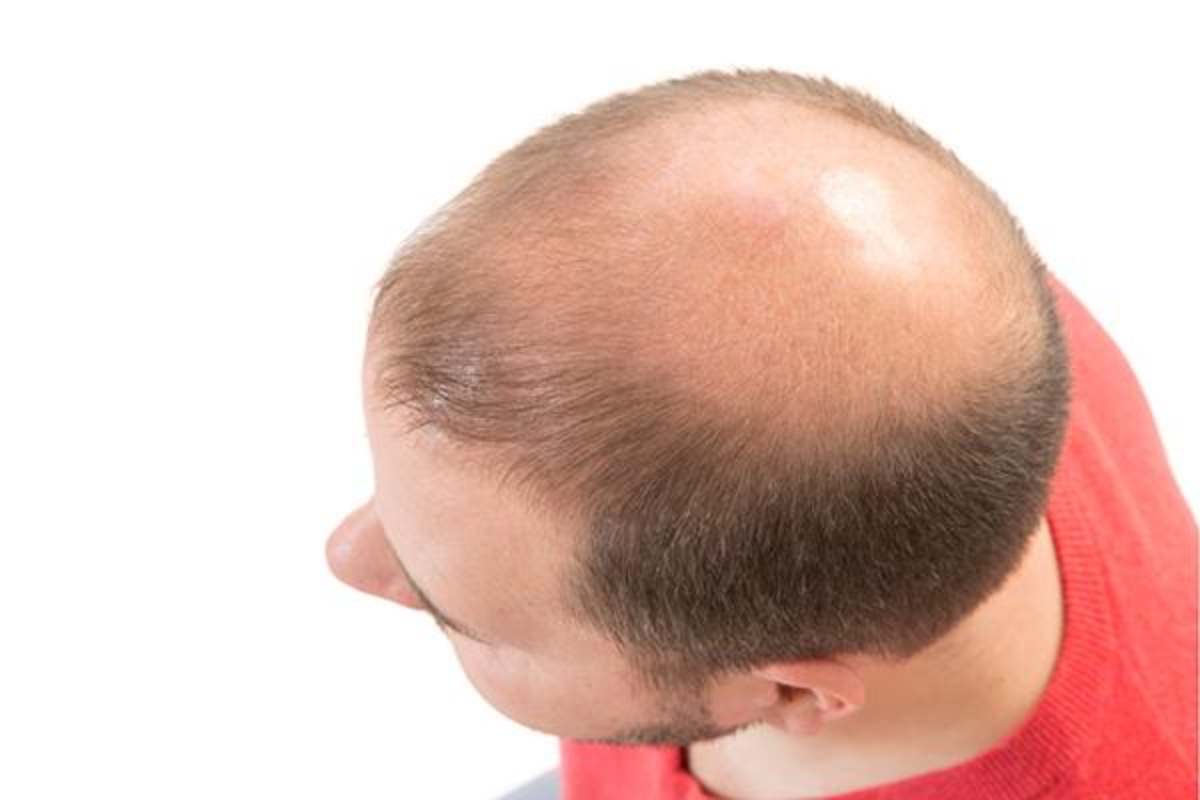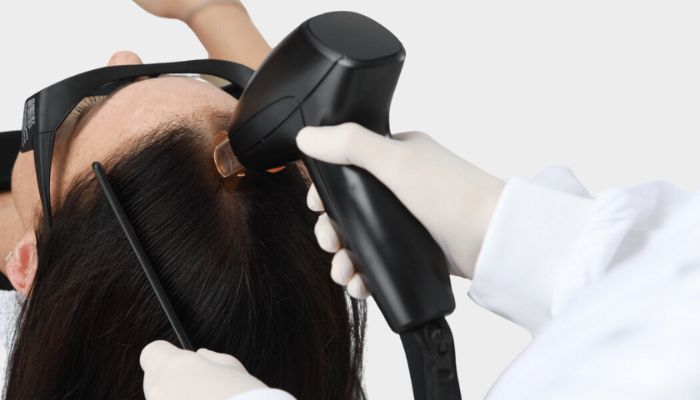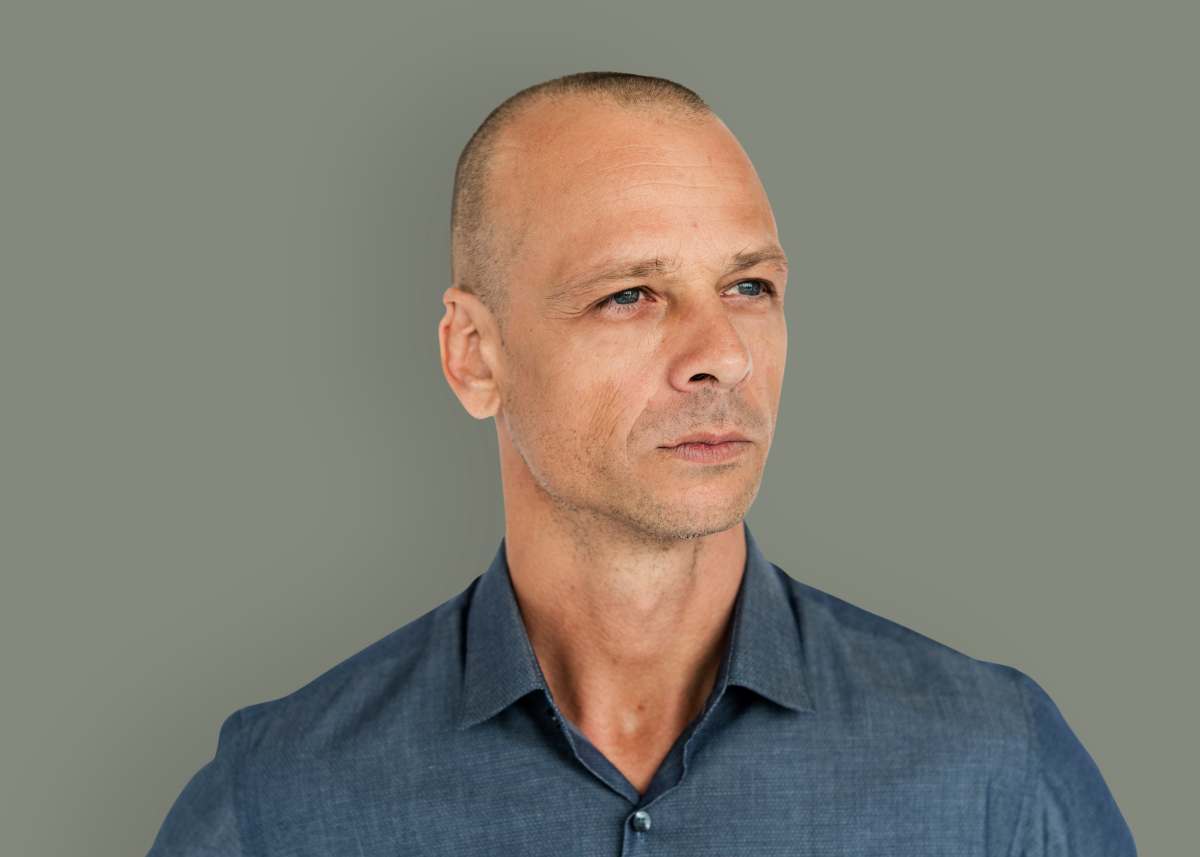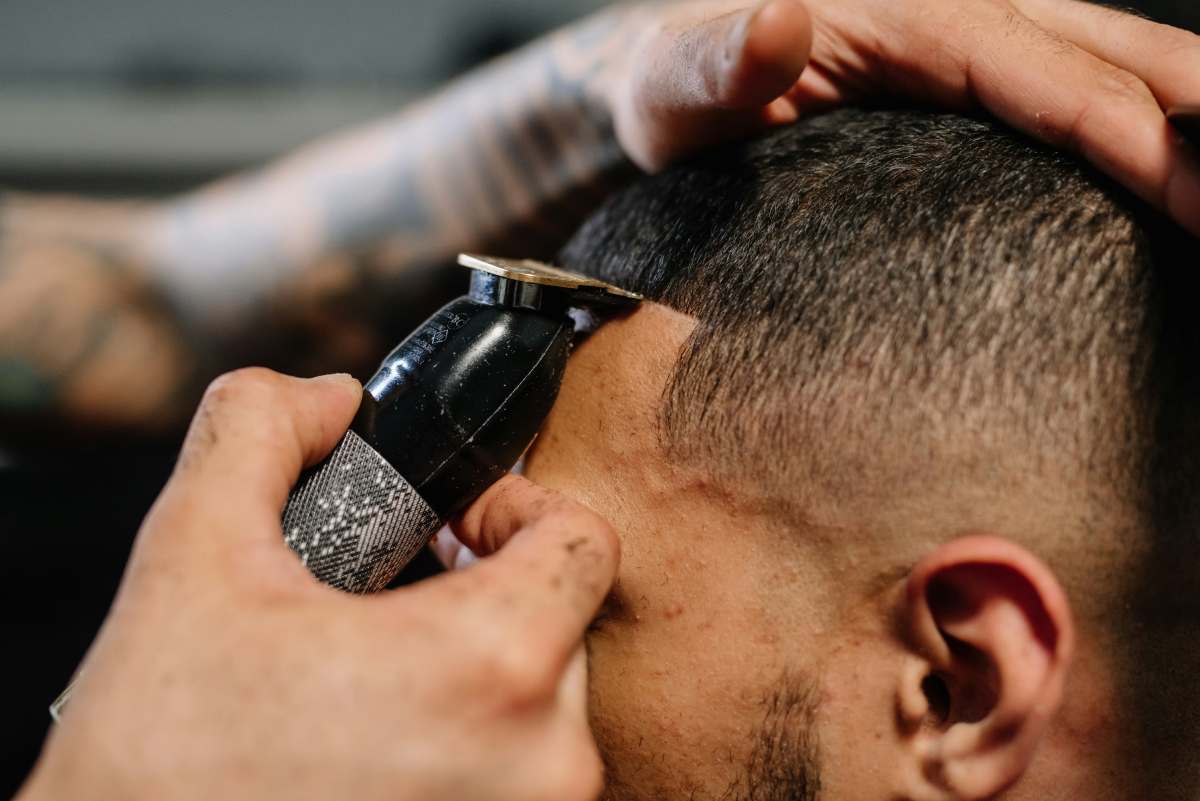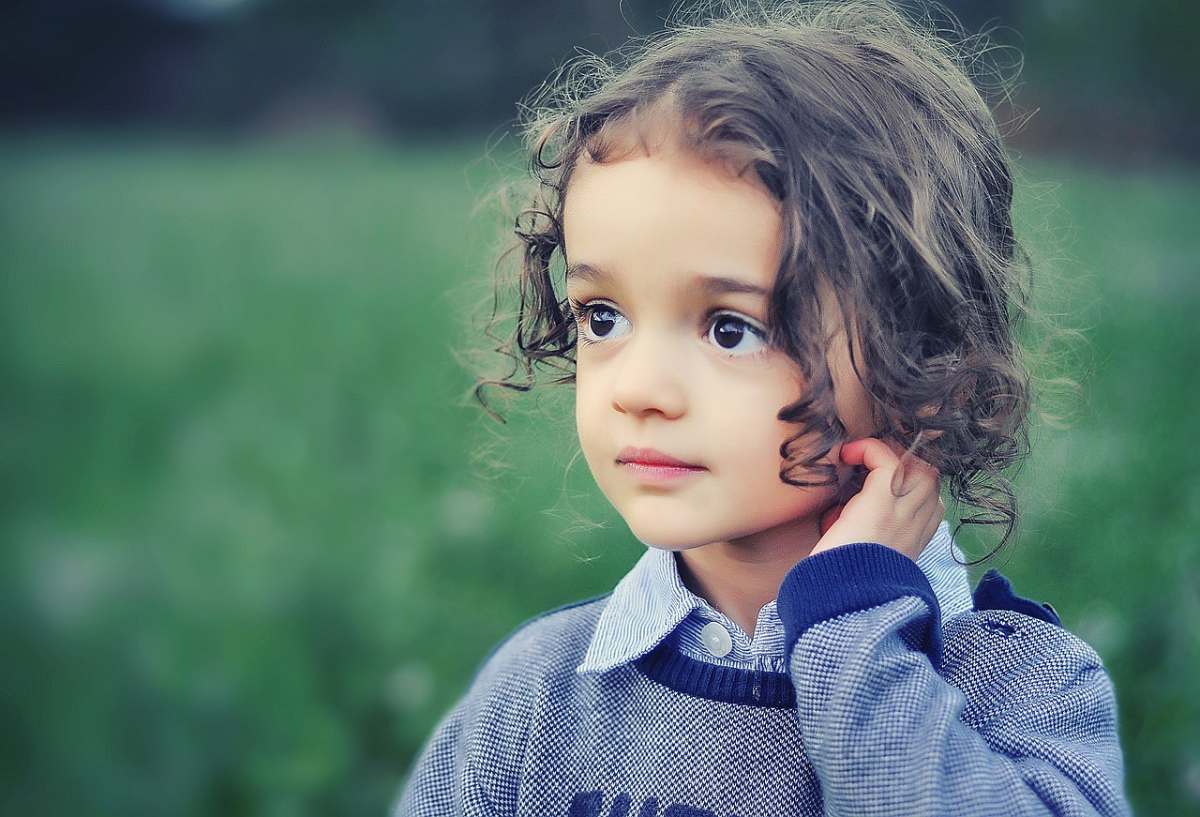The one thing that causes most male pattern baldness hair loss, and hair loss in general, is genetics. The common reason is aging. As our bodies age and metabolism slows, even if we consume the necessary elements to grow hair, our follicles start to slow down and become dormant.
As this happens the only way to slow down the process is to work with a hair loss specialist in figuring out if medical therapy like Finasteride, Minoxidil, or other non-surgical treatments, would work for you. These non-surgical treatments can help slow down the process and sometimes help to stimulate those dormant follicles into growing again, but in the end we’re all going to succumb to genetics and the aging process.
Hair transplants are another option that can help take healthy hair from other areas of your scalp and fill in those areas that may be thinning. This is currently the best solution we have for truly replacing hair in those bald spots as you get older. But we’re not really adding new hair, just moving around the hairs you have.
Now, while genetics is the leading cause of hair loss in the human body, there are other reasons that you may be losing your hair. These can range from health and diet issues, medications, outside elements, and more, which is why it is important to consult with a hair loss specialist before jumping to any conclusions regarding the cause of your hair loss. There are even some extremely uncommon things that could be causing your hair to fall out…
Uncommon Reasons You May Be Losing Your Hair
Once you get past genetics as the cause of hair loss, we start to move into the more uncommon causes. While these causes are not rare, they are not as common as what we see when it comes to genetics. In addition to being less common, a majority of hair loss associated with these causes are temporary and can be reversed with health or environmental changes.
Diet
If you’re not getting the appropriate vitamins and minerals in your diet, you may start to notice your hair getting thinner. Our bodies need vitamins and minerals like biotin, vitamin b & c, zinc, copper, and amino acids from protein in order to promote strong hair growth. Not consuming enough food with these nutrients can cause a deficiency which can cause your hair to start thinning.
In addition to the food you eat, things that are known to negatively affect your overall health, like smoking or drinking alcohol, can also cause you to lose your hair.
Medication
Certain medications like chemotherapy and antibiotics can have a negative effect on your hair health, but did you know that things like antidepressants, hormones, and cholesterol medication can also lead to hair thinning if you’re on them for an extended period of time.
The list of medications that have “hair loss” as a side-effect is extensive, but that doesn’t mean that these medications are always going to cause you to lose your hair. Pharmaceutical companies must report all the negative side-effects noticed during their testing, even if it was only in a small percentage of the sample size and it may or not be related to the study medicine. So don’t get too concerned if your medication lists hair loss as a possible side-effect, but do take note of your medications if you do start to notice hair loss in case you’re on one of the medicines that is more well-known for hair loss. While stopping a medicine may not completely reverse hair loss, you want to do everything you can to help your hair grow strong and healthy.
Overall Health
Certain diseases can also cause people to start losing their hair earlier than normal. Lupus and anemia in addition to thyroid problems and diabetes can also inhibit your hair growth.
Stress can also be a factor in hair loss. Being over stressed can lead to a number of health issues with hair thinning being one of them.
If you’ve recently been pregnant or undergone surgery, you may also start to notice some minor hair loss about 2-3 months later. Pregnancy alters the hormones in your body and those hormones control how your hair grows, so you may experience some hair loss during or after your pregnancy.
The good thing about these types of hair loss is that almost all of them are reversible or temporary. Speak with your hair loss specialist if you’ve noticed hair loss while dealing with any of the issues above.
Rare Causes of Hair Loss
In the world of hair, we know genetics is the leading cause of hair loss with the numerous factors above being much less common, but not rare. The conditions listed below, however, are very rare in the world of hair loss and are not typically what we see as the reason for someone losing their hair. Dr. Krejci thinks you’ll find them interesting to learn about and patients do occasionally show up in the world of dermatology, including our office.
Loose Anagen Syndrome
In Loose Anagen Syndrome, the “roots” of the hair, which are called follicles, are not strong enough to hold the hair in place. This makes the hair easily fall out with a simple tug, just like plants can be easily pulled out of loose soil.
Kids with Loose Anagen Syndrome may notice that their hair doesn’t stay on their heads as well as it should. It might come out more easily when they comb or brush it. This can lead to hair that looks thin or patchy or seems to just not grow. The good news is that Loose Anagen Syndrome is not a serious health problem, and people with this condition are perfectly healthy otherwise. In fact, children with this condition will outgrow it usually by the time they reach their teens.
The causes of Loose Anagen Syndrome are still not fully understood, but it seems to be related to how the hair follicles develop. Sometimes, it can be a family thing, meaning if someone in your family had it, you might get it too. It’s like passing down other traits, just like you might inherit your mom’s eye color or your dad’s smile. The typical scenario here is a parent notices that their young child isn’t needing haircuts, most commonly a blond toddler. If this sounds like your child, don’t panic, you can talk to a dermatologist or a hair loss specialist who can help figure out what’s going on.
Fun fact, both of Dr. Krejci’s children had this hair disorder! She first figured it out when another child pulled wads of hair out of her son’s head at day care when he was 3 years old. He also didn’t have his first hair cut until about age 5. And then a similar scenario for her daughter, minus the hair pulling episode. As expected, they both have normal and beautiful locks of hair today!
Triangular Temporal Alopecia
Triangular Temporal Alopecia is a type of hair loss that happens in a specific area of the head. Instead of the hair growing evenly, there is a triangular-shaped patch where the hair is thinner or doesn’t grow as much. This occurs on the sides of the head near the temple or hairline, usually on one side and can for a distinct triangle patch of hair loss; hence the name Triangular – Temporal – Alopecia!
Someone suffering from Triangular Temporal Alopecia might notice that there’s a different look or unevenness to the hairline in the temple area. The hair may seem less dense or not as full. It’s important to know that this condition is not a major health issue, and people with it are otherwise healthy.
The cause of Triangular Temporal Alopecia is not fully understood. It’s not something that can be caught from others, and it’s not the result of anything a person has done like a scar or even poor diet. It seems to be more like a unique pattern in how the hair grows. Scientists believe it might be a trait someone is born with, resulting in a distinctive triangular pattern in the hair. Think of it as a birthmark but it may not come on until later in life.
Aplasia Cutis Congenita
Aplasia Cutis Congenita is a condition where a spot of the skin doesn’t completely form on the scalp while the baby is growing in the womb. This is usually noticed at birth and it can impact the way hair grows in that spot. Imagine having a small area, about the size of a dime or nickel where the skin is not fully formed, creating a small sore on the crown of the scalp. Thankfully, the skin tends to heal up quickly after birth but can leave a small circle of hair loss with what we call a “collar of hair” that tends to spiral out from the circle.
Aplasia Cutis Congenita is not caused by something the parents did or didn’t do during pregnancy. It’s more like a unique feature that affects both the skin and the way hair grows. Similar to a cleft lip, where the skin just didn’t come all the way together, in Aplasia cutis, the skin just stopped short of closing the cap on the top of the scalp. In this case, it’s perfectly harmless like other birthmarks, sometimes the skin just has little imperfections.
Alopecia Universalis
Alopecia Universalis is a condition where a person loses all the hair on their body. This is an organ specific autoimmune condition that causes the hair on the entire body to fall out including the scalp, eyebrows, eyelashes and body hair. This means that the body has launched an attack on its own hair follicles causing them to shed, sometimes permanently.
For those with Alopecia Universalis, hair loss can happen suddenly, and it’s not related to anything a person did or didn’t do, though occasionally it is related to thyroid disease.
While it might look or feel different not having hair, it’s important to know that Alopecia Universalis in itself is not a serious health problem, and people with this condition are overall healthy like the other conditions we’ve discussed above.
Scientists are still learning about why Alopecia Universalis occurs, but for reasons unknown, the body’s immune system mistakenly attacks the hair follicles. It’s not something that can be passed from one person to another, meaning it’s not contagious nor genetic.
Hair Loss from Genetics is Common, but It’s not the Only Cause
While there are many different things that can cause hair loss, genetics is still the main reason why people lose their hair as they age.
Things like health, diet, medication, and other external factors can certainly cause hair loss, but they are not as common as most people might think. Just because a medication lists hair loss as a possible side-effect doesn’t mean that everyone that takes it is going to lose their hair. And just because you may not be getting as many vitamins as you should, doesn’t mean that you’re going to notice your hair falling out all of a sudden.
And while there are some very rare, uncommon, things that can cause hair loss, they are just that, rare. For example, Alopecia Universalis is thought to affect 0.03% of people in the world, so your chances of experiencing this type of hair loss is extremely unlikely.
Even though some of these hair loss causes are extremely rare, it’s important to speak with a hair loss specialist to help you determine the underlying cause of your hair loss before moving on to a treatment plan. A Board-Certified Dermatologist is the best doctor to help you figure out why you’re having hair loss and what treatment will be best for you.

